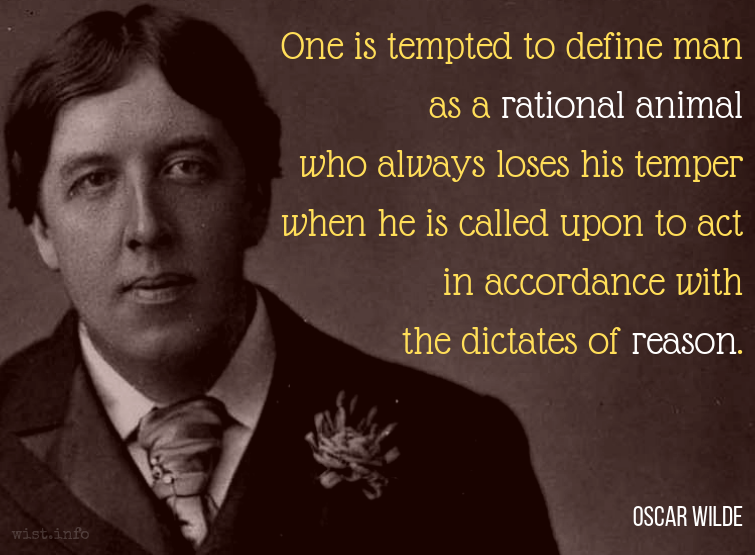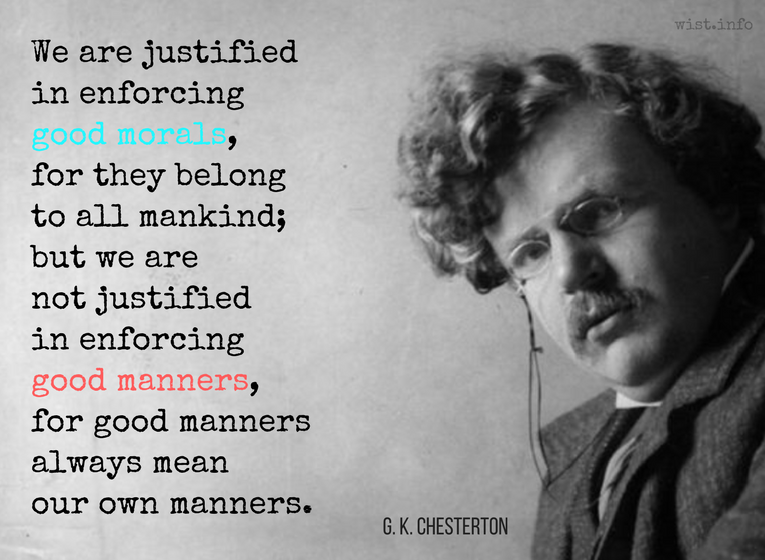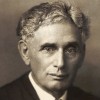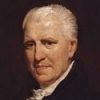The only wedding custom with a pretense to long tradition and universality, that of public checking up on the consummation of the marriage, seems to have been dropped. Miss Manners can’t think why.
Judith Martin (b. 1938) American author, journalist, etiquette expert [a.k.a. Miss Manners]
“Miss Manners,” syndicated column (1981-04-11)
(Source)
On the idea that weddings have rigid and immutable rules, roles, and set pieces that must be adhered to. Collected in Miss Manners’ Guide to Excruciatingly Correct Behavior, Part 5 "Marriage (for Beginners)," "Weddings" (1983).
Quotations about:
tradition
Note not all quotations have been tagged, so Search may find additional quotes on this topic.
Every man calls barbarous anything he is not accustomed to.
[Chacun appelle barbarie, ce qui n’est pas de son usage.]
Michel de Montaigne (1533-1592) French essayist
Essays, Book 1, ch. 30 (1.30), “Of Cannibals [Des Cannibales]” (1578) [tr. Screech (1987), 1.31]
(Source)
Some translators use the 1588 sequence of chapters, not the 1595, and so identify this as ch. 31.
(Source (French)). Alternate translations:Men call that barbarisme which is not common to them.
[tr. Florio (1603)]Every one gives the title of barbarism to everything that is not in use in his own country.
[tr. Cotton (1686)]Everyone gives the denomination of barbarism to what is not the custom of his country.
[tr. Friswell (1868)]Every one gives the title of barbarism to everything that is not in use in his own country.
[tr. Cotton/Hazlitt (1877)]Every one calls "barbarism" whatever he is not accustomed to.
[tr. Ives (1925), 1.31]Each man calls barbarism whatever is not his own practice.
[tr. Frame (1943)]Everyone calls barbarism what is not customary to him.
[ed. Rat (1958), 1.31]Everyone calls what he is not accustomed to barbarity.
[tr. Atkinson/Sices (2012)]
You’d be amazed how quickly traditions and policies can be undermined by men and women with clever minds, clever tongues, and no principles.
John G. Hemry (b. 1956) American naval officer, author [pseud. Jack Campbell]
Triumphant, ch. 16 (2019) [as Jack Campbell]
(Source)
Often an opinion, a custom, seems absurd when we are young, and advancing in life, we find the reason. Mustn’t we conclude that certain habits aren’t so ridiculous? One is lead to think sometimes that they were established by people who had read the entire book of life, and that they are judged by people who, despite their esprit, have only read a few pages.
[Souvent une opinion, une coutume commence à paraître absurde dans la première jeunesse, et en avançant dans la vie, on en trouve la raison; elle paraît moins absurde. En faudrait-il conclure que de certaines coutumes sont moins ridicules? On serait porté à penser quelquefois qu’elles ont été établies par des gens qui avaient lu le livre entier de la vie, et qu’elles sont jugées par des gens qui, malgré leur esprit, n’en ont lu que quelques pages.]
Nicolas Chamfort (1741-1794) French writer, epigrammist (b. Nicolas-Sébastien Roch)
Products of Perfected Civilization [Produits de la Civilisation Perfectionée], Part 1 “Maxims and Thoughts [Maximes et Pensées],” ch. 1, ¶ 21 (1795) [tr. Siniscalchi (1994)]
(Source)
Compare to also Chamfort.(Source (French)). Alternate translations:Often in early youth an opinion or custom seems absurd to us, which, with advancing years, we discover has some justification and so appears less absurd. Ought we to conclude from this that certain customs are not so ridiculous as others? One might sometimes be tempted to think that they were established by people who had read the book of life through, and that they are judged by those who, despite their intelligence, have only glanced at a few pages.
[tr. Hutchinson (1902)]Often an opinion or custom seems absurd to us in early youth; but as we advance in life we see the reason for it, and it appears less fatuous. Must we conclude from this that certain customs actually are less absurd? One is sometimes led to suppose that they have been established by folk who have read the whole of the book of life, and that they are criticized by those who, in spite of their intelligence, have only read a page or two at best.
[tr. Mathers (1926)]Often an opinion, a custom, seems absurd to begin with, when one is very young, and as one advances in life one learns the reason for it, and it seems less so. Must one conclude, then, that certain customs have become less ridiculous? At times one is drawn to the conclusion that they were established by persons who had read the book of life entire, and are judged by others who have read only a few pages.
[tr. Merwin (1969)]Often an opinion, or a custom, begins to seem absurd in one's early youth, and, as life advances, one finds the reason for it; it seems less absurd. Is one ot conclude that certain customs are less ridiculous? One would sometimes be inclined to think that they had been laid down by people who had read the entire book of life, and that they are judged by people who, in spite of their intellect, have only read a few pages of it.
[tr. Pearson (1973)]To the very young some opinions or customs seem absurd, but as you grow older you realize the reason behind them and they seem less absurd. Are we to conclude that certain customs aren't as ridiculous as they seem? There are times when you feel that they've been created by people who've read the book of life from cover to cover and that they're being judged by those who, however intelligent, have read only a few pages.
[tr. Parmée (2003), ¶ 20]
But now persecution is good, because it exists; every law which originated in ignorance and malice, and gratifies the passions from whence it sprang, we call the wisdom of our ancestors: when such laws are repealed, they will be cruelty and madness; till they are repealed, they are policy and caution.
Sydney Smith (1771-1845) English clergyman, essayist, wit
The Letters of Peter Plymley, Letter 5 (1807)
(Source)
One reason that the task of inventing manners is so difficult is that etiquette is folk custom, and people have emotional ties to the forms of their youth. That is why there is such hostility between generations in times of rapid change; their manners being different, each feels affronted by the other, taking even the most surface choices for challenges.
Judith Martin (b. 1938) American author, journalist, etiquette expert [a.k.a. Miss Manners]
Common Courtesy, “On Etiquette as Language, Weapon, Custom, and Craft” (1985)
(Source)
Old Custom, without Truth, is but an old Errour.
Thomas Fuller (1654-1734) English physician, preacher, aphorist, writer
Gnomologia: Adages and Proverbs (compiler), # 3710 (1732)
(Source)
It is customary to suppose that, if a belief is widespread, there must be something reasonable about it. I do not think this view can be held by anyone who has studied history. Practically all the beliefs of savages are absurd. In early civilizations there may be as much as one percent for which there is something to be said. In our own day …. But at this point I must be careful. We all know that there are absurd beliefs in Soviet Russia. If we are Protestants, we know that there are absurd beliefs among Catholics. If we are Catholics, we know that there are absurd beliefs among Protestants. If we are Conservatives, we are amazed by the superstitions to be found in the Labour Party. If we are Socialists, we are aghast at the credulity of Conservatives. I do not know, dear reader, what your beliefs may be, but whatever they may be, you must concede that nine-tenths of the beliefs of nine-tenths of mankind are totally irrational. The beliefs in question are, of course, those which you do not hold.
Bertrand Russell (1872-1970) English mathematician and philosopher
“Is There a God?” (1952)
(Source)
Essay commissioned by Illustrated magazine in 1952, but never published there. First publication in Russell, Last Philosophical Testament, 1943-68 (1997) [ed. Slater/Köllner].
What is Tradition? It’s the thing we laugh at the English for having, and we beat them practicing it.
Will Rogers (1879-1935) American humorist
Article (1928-05-26), “Letter of a Self-Made Diplomat to His President,” Saturday Evening Post
(Source)
Collected in More Letters of a Self-Made Diplomat to His President (1928) [ed. Steven Gragert].
The superstition into which we’re born,
Even when we recognize it, loses not
Its power on us! Not all those are free
Who ridicule their chains.[Der Aberglaub’, in dem wir aufgewachsen,
Verliert, auch wenn wir ihn erkennen, darum
Doch seine Macht nicht über uns. — Es sind
Nicht alle frei, die ihrer Ketten spotten.]Gotthold Lessing (1729-1781) German playwright, philosopher, dramaturg, writer
Nathan the Wise [Nathan der Weise], Act 4, sc. 4 [Templar] (1779) [tr. Corbett (1883)]
(Source)
(Source (German)). Alternate translations:Yet the superstition
in which we have grown up, not therefore loses
when we detect it, all its influence on us.
Not all are free that can bemock their fetters.
[tr. Taylor (1790)]The superstition in which we grew up,
Does not cease influencing us, e'en after
We have discover'd its absurdity.
Not all are free who do bemock their fetters.
[tr. Reich (1860)]The superstition in which we were brought up never loses its power over us, even after we understand it.
[Source (1866)]And yet the superstitions we have learned
From education, do not lose their power
When we have found them out; nor are all free
Whose judgment mocks the galling chains they wear.
[tr. Boylan (1878)]The superstition in which we have grown up
Does not lose (even if we see through it)
Its power on us, on that account;
All are not free who mock their chains.
[tr. Jacks (1894)]The superstitions of our early years,
E'en when we know them to be nothing more,
Lose not for that their hold upon our hearts;
Not all are free who ridicule their chains.
[tr. Maxwell (1917)]The superstition in which we have grown up does not lose its power over us even for the reason that we recognize it as such. Not all are free who mock their chains.
[tr. Reinhardt (1950)]The superstition in which we grew up,
Though we may recognize it, does not lose
Its power over us -- Not all are free
Who make mock of their chains.
[tr. Morgan (1955)]Merely because we see the defects of the superstition we grew up in, it doesn't lose its hold upon our souls! Those men who mock their chains are not all free!
[tr. Ade (1972)]
In the main, I think religion has done a great deal of harm. Largely by sanctifying conservatism and adhesion to ancient habits, and still more by sanctifying intolerance and hatred. The amount of intolerance that has gone into religion, especially in Europe, is quite terrible.
Bertrand Russell (1872-1970) English mathematician and philosopher
Interview by Woodrow Wyatt, BBC TV (1959)
Collected in Bertrand Russell's BBC Interviews (1959) [UK] and Bertrand Russell Speaks His Mind (1960) [US]. Reprinted (abridged) in The Humanist (1982-11/12), and in Russell Society News, #37 (1983-02).
Philosophy complains that Custom has hoodwinked us, from the first; that we do everything by Custom, even Believe by it; that our very Axioms, let us boast of Free-thinking as we may, are oftenest simply such Beliefs as we have never heard questioned. Nay, what is Philosophy throughout but a continual battle against Custom; an ever-renewed effort to transcend the sphere of blind Custom, and so become Transcendental?
Thomas Carlyle (1795-1881) Scottish essayist and historian
Sartor Resartus, Book 3, ch. 8 (1834)
(Source)
Quoting Herr Teufelsdröckh.
This chapter first appeared in Fraser's Magazine for Town and Country, Vol. 10, No. 55 (1834-07).
Two conditions are essential to the realization of justice according to law. The law must have an authority supreme over the will of the individual, and such an authority can arise only from a background of social acquiescence, which gives it the voice of indefinitely greater numbers than those of its expositors. Thus, the law surpasses the deliverances of even the most exalted of its prophets; the momentum of its composite will alone makes it effective to coerce the individual and reconciles him to his subserviency. The pious traditionalism of the law has its roots in a sound conviction of this necessity; it must be content to lag behind the best inspiration of its time until it feels behind it the weight of such general acceptance as will give sanction to its pretension to unquestioned dictation.
Learned Hand (1872-1961) American jurist
“The Speech of Justice,” Harvard Law Review (1916-04)
(Source)
Collected in The Spirit of Liberty (1953).
I was raised in an old-fashioned American tradition and there were certain homely things that were taught to me: To try to tell the truth, not to bear false witness, not to harm my neighbor, to be loyal to my country, and so on. In general, I respected these ideals of Christian honor and did as well with them as I knew how. It is my belief that you will agree with these simple rules of human decency and will not expect me to violate the good American tradition from which they spring.
Lillian Hellman (1905-1984) American playwright, screenwriter
Letter to Rep. John S. Wood, House Committee on Un-American Activities (19 May 1952)
(Source)
On declining to "name names" before HUAC (see here). National Archives copy. Reprinted in The Nation (31 May 1952).
As a result of the letter and her invoking the Fifth Amendment at the HUAC hearings, Hellman was put on the Hollywood Blacklist for the rest of the decade.
Many quite nefarious ideologies pass for common sense. For decades of American history, it was common sense in some quarters for white people to own slaves and for women not to vote. If common sense sometimes preserves the social status quo, and that status quo sometimes treats unjust social hierarchies as natural, it makes good sense on such occasions to find ways of challenging common sense.
It is useful to know something of the manners of different nations, that we may be enabled to form a more correct judgment regarding our own, and be prevented from thinking that everything contrary to our customs is ridiculous and irrational, — a conclusion usually come to by those whose experience has been limited to their own country.
[Il est bon de savoir quelque chose des moeurs de divers peuples, afin de juger des nôtres plus sainement, et que nous ne pensions pas que tout ce qui est contre nos modes soit ridicule et contre raison, ainsi qu’ont coutume de faire ceux qui n’ont rien vu.]
René Descartes (1596-1650) French philosopher, mathematician
Discourse on Method [Discours de la méthode], Part 1 (1637) [tr. Veitch (1850)]
(Source)
(Source (French)). Alternate translations:It's good to know something of the manners of severall Nations, that we may not think that all things against our Mode are ridiculous or unreasonable, as those are wont to do, who have seen Nothing.
[Newcombe ed. (1649)]It is good to know something of the customs of different peoples in order to judge more sanely of our own, and not to think that everything of a fashion not ours is absurd and contrary to reason, as do those who have seen nothing.
[tr. Haldane & Ross (1911)]It is good to know something of the customs of various peoples, so that we may judge our own more soundly and not think that everything contrary to our own ways is ridiculous and irrational, as those who have seen nothing of the world ordinarily do.
[tr. Cottingham, Stoothoff (1985)]It is well to know something of the manner of various peoples, in order more sanely to judge our own, and that we do not think that everything against our modes is ridiculous, and against reason, as those who have seen nothing are accustomed to think.
Tradition means giving votes to the most obscure of all classes, our ancestors. It is the democracy of the dead. Tradition refuses to submit to the small and arrogant oligarchy of those who merely happen to be walking about.
Gilbert Keith Chesterton (1874-1936) English journalist and writer
Orthodoxy, ch. 4 “The Ethics of Elfland” (1908)
(Source)
To many white Americans, President Obama must have been corrupt, because his very occupation of the White House was a kind of corruption of the traditional order. When women attain positions of political power usually reserved for men — or when Muslims, blacks, Jews, homosexuals, or “cosmopolitans” profit or even share the public goods of a democracy, such as healthcare — that is perceived as corruption.
Jason Stanley (b. 1969) American philosopher, epistemologist, academic
How Fascism Works: The Politics of Us and Them, ch. 2 (2018)
(Source)
Even in their appeal to “custom” they accomplish nothing. To constrain us to yield to custom would be to treat us most unjustly. Indeed, if men’s judgments were right, custom should have been sought of good men. But it often happens far otherwise: what is seen being done by the many soon obtains the force of custom; while the affairs of men have scarcely ever been so well regulated that the better things pleased the majority. Therefore, the private vices of the many have often caused public error, or rather a general agreement on vices, which these good men now want to make law.
John Calvin (1509-1564) French theologian and reformer
The Institutes of the Christian Religion [Christianae Religionis Institutio], Preface, sec. 5 (1536) [tr. Battles (1960]
(Source)
Alternate translation:Then, again, it is to no purpose they call us to the bar of custom. To make every thing yield to custom would be to do the greatest injustice. Were the judgments of mankind correct, custom would be regulated by the good. But it is often far otherwise in point of fact; for, whatever the many are seen to do, forthwith obtains the force of custom. But human affairs have scarcely ever been so happily constituted as that the better course pleased the greater number. Hence the private vices of the multitude have generally resulted in public error, or rawther that common consent in vice which these worthy men would have to be law.
[tr. Beveridge (1845)]
Imagination continually frustrates tradition; that is its function.
John Pfeiffer (1914-1999) American anthropologist, author
“Nature, the Radical Conservative,” New York Times (29 Apr 1979)
(Source)
Book review of Gregory Bateson, Mind and Nature. This quotation is frequently misattributed to Jules Feiffer.
Queerly shaped pieces of flat silver, contrived for purposes known only to their designers, have no place on a well appointed table. So if you use one of these implements for a purpose not intended, it cannot be a breach of etiquette, since etiquette is founded on tradition, and has no rules concerning eccentricities.
Emily Post (1872-1960) American author, columnist [née Price]
Etiquette: The Blue Book of Social Usage, ch. 37 “Flat Silver” (1922; 1927 ed.)
(Source)
Every now and then, in the course of great events, the elements of tradition and innovation ally themselves and each one’s weakness supplements the other and together they achieve the perfect debacle.
Murray Kempton (1917-1997) American journalist.
“The Genius of Mussolini,” New York Review of Books (7 Oct 1982)
(Source)
Reprinted in Rebellions, Perversities, and Main Events (1994).
The rule which should guide us in such cases is simple and obvious enough: that the aggregate testimony of our neighbours is subject to the same conditions as the testimony of any one of them. Namely, we have no right to believe a thing true because everybody says so unless there are good grounds for believing that some one person at least has the means of knowing what is true, and is speaking the truth so far as he knows it. However many nations and generations of men are brought into the witness-box, they cannot testify to anything which they do not know. Every man who has accepted the statement from somebody else, without himself testing and verifying it, is out of court; his word is worth nothing at all. And when we get back at last to the true birth and beginning of the statement, two serious questions must be disposed of in regard to him who first made it: was he mistaken in thinking that he knew about this matter, or was he lying?
William Kingdon Clifford (1845-1879) English mathematician and philosopher
“The Ethics of Belief,” Part 2 “The Weight of Authority,” Contemporary Review (Jan 1877)
(Source)
The security of society lies in custom and unconscious instinct, and the basis of the stability of society, as a healthy organism, is the complete absence of any intelligence amongst its members. The great majority of people being aware of this, rank themselves naturally on the side of that splendid system that elevates them to the dignity of machines, and rage so wildly against the intrusion of the intellectual faculty into any question that concerns life, that one is tempted to define man as a rational animal who always loses his temper when he is called upon to act in accordance with the dictates of reason.
Oscar Wilde (1854-1900) Irish poet, wit, dramatist
“The Critic as Artist,” Intentions (1891)
(Source)
We are justified in enforcing good morals, for they belong to all mankind; but we are not justified in enforcing good manners, for good manners always mean our own manners.
Gilbert Keith Chesterton (1874-1936) English journalist and writer
All Things Considered, “Limericks and Counsels of Perfection” (1908)
(Source)
Somehow he has internalized the ur-cultural narrative: you grow up, go to university, get a job, meet Ms. Right, get married, settle down, have kids, grow old together … it’s like some sort of checklist. Or maybe a list of epic quests you’ve got to complete while level-grinding in a game you’re not allowed to quit, with no respawns and no cheat codes.
Truth is compar’d in Scripture to a streaming fountain; if her waters flow not in a perpetuall progression, they sick’n into a muddy pool of conformity and tradition.
[Truth is compared in Scripture to a streaming fountain; if her waters flow not in a perpetual progression, they sicken into a muddy pool of conformity and tradition.]
The most absurd customs and the most ridiculous ceremonies are everywhere excused by an appeal to the phrase, but that’s the tradition. This is exactly what the Hottentots say when Europeans ask them why they eat grasshoppers and devour their body lice. That’s the tradition, they explain.
[Les coutumes les plus absurdes, les étiquettes les plus ridicules, sont en France et ailleurs sous la protection de ce mot: c’est l’usage. C’est précisément ce même mot que répondent les Hottentots, quand les Européens leur demandent pourquoi ils mangent des sauterelles, pourquoi ils dévorent la vermine dont ils sont couverts. Ils disent aussi: c’est l’usage.]
Nicolas Chamfort (1741-1794) French writer, epigrammist (b. Nicolas-Sébastien Roch)
Products of Perfected Civilization [Produits de la Civilisation Perfectionée], Part 1 “Maxims and Thoughts [Maximes et Pensées],” ch. 3, ¶ 249 (1795) [tr. Mathers (1926)]
(Source)
(Source (French)). Alternate translations:The most absurd conventions, the most ridiculous formalities enjoy in France and elsewhere the protection of the phrase, "It's the custom.” It is the very phrase with which the Hottentots answer when the Europeans ask them why they eat grasshoppers, why they devour the vermin that crawl on them. They too say, “It’s the custom.”
[tr. Merwin (1969)]The most absurd habits, the most ridiculous matters of etiquette enjoy in France and elsewhere the protection afforded by this phrase: "It is the custom." It is precisely this phrase which Hottentots produce when Europeans ask them why they eat grasshoppers, and why they devour the vermin with which they are infested. They also say: "It is the custom."
[tr. Pearson (1973)]The most absurd customs, the most ridiculous etiquettes, are in France and elsewhere under the protection of this phrase: That's how things are. That is precisely the phrase that Hottentots say when Europeans ask them why they eat locusts; why they consume the vermin that they are covered in. They saÿ: "That's how things are."
[tr. Siniscalchi (1994)]In France and elsewhere, the most absurd customs and protocol are justified by the statement "It's always been done like that." That's exactly what Hottentots tell Europeans when asked why they feed on locusts or the vermin on their bodies: "It's what we've always done."
[tr. Parmée (2003), ¶161]
As has been pointed out so often, it is characteristic of mankind to make as little adjustment as possible in customary ways in the face of new conditions; the process of social change is epitomized in the fact that the first Packard car body delivered to the manufacturers had a whipstock on the dashboard.
Robert Lynd (1892-1970) American sociologist [Robert Slaughton Lynd]
Middletown, ch. 29 (1929) [with Helen Lynd]
(Source)
The process which, if not checked, will abolish Man goes on apace among Communists and Democrats no less than among Fascists. The methods may (at first) differ in brutality. But many a mild-eyed scientist in pince-nez, many a popular dramatist, many an amateur philosopher in our midst, means in the long run just the same as the Nazi rulers of Germany: ‘Traditional values are to be debunked’ and mankind to be cut out into some fresh shape at the will (which must, by hypothesis, be an arbitrary will) of some few lucky people in one lucky generation which has learned how to do it.
C. S. Lewis (1898-1963) English writer, literary scholar, lay theologian [Clive Staples Lewis]
The Abolition of Man (1943)
(Source)
The process which, if not checked, will abolish Man goes on apace among Communists and Democrats no less than among Fascists. The methods may (at first) differ in brutality. But many a mild-eyed scientist in pince-nez, many a popular dramatist, many an amateur philosopher in our midst, means in the long run just the same as the Nazi rulers of Germany: ‘Traditional values are to be debunked’ and mankind to be cut out into some fresh shape at the will (which must, by hypothesis, be an arbitrary will) of some few lucky people in one lucky generation which has learned how to do it.
The man who has no tincture of philosophy goes through life imprisoned in the prejudices derived from common sense, from the habitual beliefs of his age or his nation, and from convictions which have grown up in his mind without the co-operation or consent of his deliberate reason.
Most of the things we do, we do for no better reason than that our fathers have done them or our neighbors do them, and the same is true of a larger part than what we suspect of what we think.
Religion that seeks to be no more than a time capsule is likely to be claustrophobic.
Abdal Hakim Murad (b. 1960) British Muslim shaykh, researcher, writer, academic [b. Timothy John Winter]
“Contentions 2,” # 8
(Source)
It is revolting to have no better reason for a rule of law than that so it was laid down in the time of Henry IV.
Oliver Wendell Holmes, Jr. (1841-1935) American jurist, Supreme Court Justice
Speech (1897-01-18), “The Path of the Law,” Supreme Judicial Court of Massachusetts
(Source)
Stare decisis is usually the wise policy, because in most matters it is more important that the applicable rule of law be settled than that it be settled right. … This is commonly true even where the error is a matter of serious concern, provided correction can be had by legislation. But in cases involving the Federal Constitution, where correction through legislative action is practically impossible, this court has often overruled its earlier decisions. The court bows to the lessons of experience and the force of better reasoning, recognizing that the process of trial and error, so fruitful in the physical sciences, is appropriate also in the judicial function.
It is no good reason for a man’s religion that he was born and brought up in it; for then a Turk would have as much reason to be a Turk as a Christian to be a Christian.
William Chillingworth (1602-1644) English churchman and theologian
Religion of Protestants, ch. 2, sec. 113 (1687)
(Source)
By liberty I mean the assurance that every man shall be protected in doing what he believes his duty against the influence of authority and majorities, custom and opinion. The State is competent to assign duties and draw the line between good and evil only in its immediate sphere. Beyond the limits of things necessary for its well-being, it can only give indirect help to fight the battle of life by promoting the influences which prevail against temptation, — religion, education, and the distribution of wealth.
John Dalberg, Lord Acton (1834-1902) British historian, politician, writer
Speech (1877-02-28), “The History of Freedom in Antiquity,” Bridgenorth Institute
(Source)
Men make their own history, but they do not make it just as they please; they do not make it under circumstances chosen by themselves but under circumstances directly encountered, given and transmitted from the past. The tradition of all the dead generations weighs like a nightmare on the brains of the living.
Karl Marx (1818-1883) German philosopher, economist, sociologist, historian, journalist
The Eighteenth Brumaire of Louis Napoleon, ch. 1 (1852)
(Source)
Don’t talk to me about naval tradition. It’s nothing but rum, sodomy, and the lash.
What is called fashion is the tradition of the moment.
[Was man Mode heißt, ist augenblickliche Uberlieferung.]
Johann Wolfgang von Goethe (1749-1832) German poet, statesman, scientist
Sprüche in Prosa: Maximen und Reflexionen [Proverbs in Prose: Maxims and Reflections] (1833) [tr. Saunders (1893), “Life and Character,” sec. 7, #392]
(Source)
(Source (German)). Alternate translations:That which we call fashion is the tradition of the moment.
[tr. Rönnfeldt (1900)]What we call fashion is momentary transmission.
[tr. Stopp (1995), "Posthumous," #986]
All men are by nature conservative but conservatism in the military profession is a source of danger to the country. One must be ready to change his line sharply and suddenly, with no concern for the prejudices and memories of what was yesterday. To rest upon formula is a slumber that, prolonged, means death.
Hyman Rickover (1900-1986) American naval engineer, submariner, US Navy Admiral
Speech (1954-03-16), “Administering a Large Military Development Project,” US Naval Postgraduate School, Monterey, California
(Source)
It is bad religion to deify doctrines and creeds. While indispensable to religious life, doctrines and creeds are only so as signposts. Love alone is the hitching post. Doctrines, let’s not forget, supported slavery and apartheid; some still support keeping women in their places and gays and lesbians in limbo. Moreover, doctrines can divide while compassion can only unite. In other words, religious folk, all our lives, have both to recover tradition and to recover from it.
William Sloane Coffin, Jr. (1924-2006) American minister, social activist
Credo, “Faith, Hope, Love” (2004)
(Source)
Do not believe in anything simply because you have heard it. Do not believe in anything simply because it is spoken and rumored by many. Do not believe in anything simply because it is found written in your religious books. Do not believe in anything merely on the authority of your teachers and elders. Do not believe in traditions because they have been handed down for many generations. But after observation and analysis, when you find that anything agrees with reason and is conducive to the good and benefit of one and all, then accept it and live up to it.
Loyalty to petrified opinions never yet broke a chain or freed a human soul in this world — and never will.
Some will object, that a comparison cannot fairly be made between the government of the male sex and the forms of unjust power which I have adduced in illustration of it, since these are arbitrary, and the effect of mere usurpation, while it on the contrary is natural. But was there ever any domination which did not appear natural to those who possessed it?
John Stuart Mill (1806-1873) English philosopher and economist
The Subjection of Women, ch. 1 (1869)
(Source)
Perhaps the sentiments contained in the following pages, are not YET sufficiently fashionable to procure them general favour; a long habit of not thinking a thing WRONG, gives it a superficial appearance of being RIGHT, and raises at first a formidable outcry in defense of custom. But the tumult soon subsides. Time makes more converts than reason.
Thomas Paine (1737-1809) American political philosopher and writer
Common Sense (14 Feb 1776)
Source essay




















































